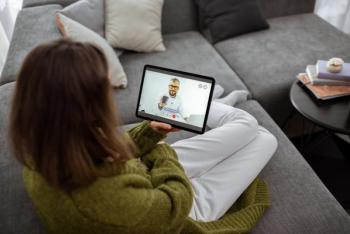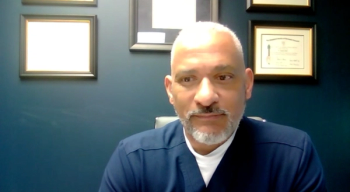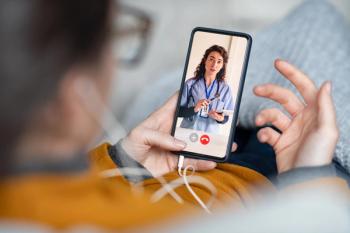
Technology
Latest News
Latest Videos

CME Content
More News

The FDA approves BrainSense Adaptive deep brain stimulation and electrode identifier technology for the treatment of Parkinson disease.

Jeffrey Stark, MD, vice president and head of medical immunology at UCB, analyzes the Bimzelx Navigate program, a comprehensive support system developed to empower patients prescribed bimekizumab-bkzx (Bimzelx; UCB).

Higher telemedicine adoption among Medicare beneficiaries was associated with a slight increase in total visits but a reduction in certain low-value tests and related spending.

This multicenter study sheds more light on sex-based differences in aortic stenosis (AS) and argues the benefits of using cardiovascular magnetic resonance (CMR) to assess sex-based risks in AS.

This year's report demonstrates the potential impact of automated processes on medical and dental industry spending, with projected savings amounting to $20 billion.

Antoine Keller, MD, founded HeartSense with the purpose of uncovering and addressing the cardiovascular needs of rural, often underserved communities.

The Center on Health Equity & Access strives to improve health care delivery and outcomes by addressing disparities through education, training, frontline insights, and evidence-based approaches.

Telehealth disparities are driven by more than language barriers, according to experts outlining systemic factors and solutions in new research.

Patients with mild atopic dermatitis who reported nighttime scratching experienced relief when they used an artificial intelligence (AI)-powered wearable sensor that delivered haptic feedback on sleep behaviors.

George Jones of UpScript Health discusses telemedicine's evolution from basic e-prescribing to real-time video consultations, expanding treatment beyond primary care.

This letter discusses previously published research that paves the way for deeper exploration of the ethical and human aspects of artificial intelligence in health care.

Despite research showing the benefits of circulating tumor DNA as an indicator of disease remission in B-cell lymphoma, hurdles that include availability and cost remain to its widespread implementation.

In this interview, chief operating officer and cofounder of Upfront Healthcare, Carrie Kozlowski, OT, MBA, discusses the integration of artificial intelligence (AI) in health care, emphasizing both opportunities and risks.

Amazon Pharmacy's RxPass program shows promise in boosting medication adherence and reducing costs, according to a study.

Serum soluble interleukin-2 receptor (sIL-2R) levels have been a great diagnostic tool for non-Hodgkin lymphoma (NHL) and could provide further benefits for distinguishing soft-tissue NHL from other soft tissue tumors.

With high-sensitivity and strong negative predictive value, this artificial intelligence (AI)-powered tool enhances early colorectal cancer (CRC) detection and risk stratification in primary care.

Among publicly insured children with mental health–related encounters, racial and ethnic disparities in telemental health use widened following the onset of the COVID-19 pandemic.

Artificial intelligence (AI) models, particularly artificial neural networks and machine learning, outperform traditional methods in predicting post–complete cytoreduction outcomes in patients with ovarian cancer, including overall survival, no residual disease, and postoperative complications.

The COVID-19 pandemic accelerated the widespread adoption of telemental health care, and new research indicates significant racial and ethnic disparities in access to this technology among Medicaid beneficiaries with schizophrenia.

In this second half of our interview with Vanderbilt University Medical Center’s Travis Osterman, DO, MS, FAMIA, FASCO, he discusses opportunities for advancing the smart use of artificial intelligence (AI) in cancer care.

Doctors conducted suicide risk assessments for 42% of patients flagged by interruptive alerts, compared with only 4% with passive alerts.

People living with HIV in California were highly satisfied with telephone visits during the height of the COVID-19 pandemic and wanted to continue them in their regular care.

In this second part of our interview with Kasey Bond, MPH, NYU Langone Health, we discuss the contributions of community health workers to increasing clinical trial access and how technology—artificial intelligence (AI), in particular—can help to facilitate the process.

Song Park, MD, University of Washington Medicine, advocates for more user-friendly technology to support equitable skin cancer care access.

Ryan Nguyen, DO, University of Illinois Chicago, highlights the importance of personalized care for patients who have non–small cell lung cancer (NSCLC) and the potential of artificial intelligence (AI) in oncology, while cautioning against its limitations, including the risk of unsupported recommendations.


















